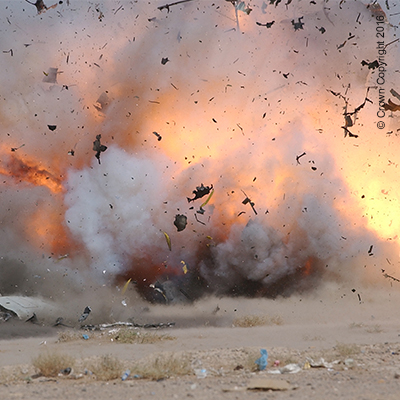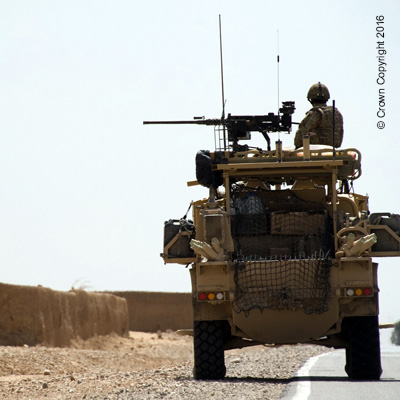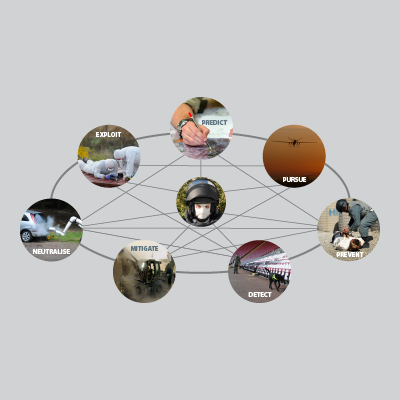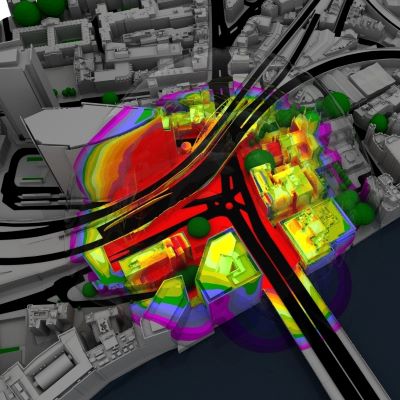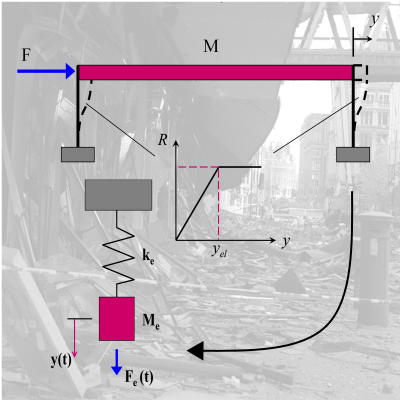Viper Applied Science develops innovative blast software that uses accelerated computational fluid dynamics (CFD) to solve some of the most challenging blast problems found in industry. Our blast solver Viper::Blast is widely used in industry, academia and government and emphasises an industry-focused methodology and workflow. This makes such analysis both computationally ‘fast’ while packaged into an efficient and validated workflow.
Nevertheless, computational fluid dynamics is typically seen as both complex and expensive (computationally, financially and in terms of time), and this has hindered its widespread adoption in the protective design industry. In this seminar, we will give an introduction and overview to Modern Blast CFD. Starting from the basics of a typical blast analysis workflow, we’ll present the limitations (and advantages) of typical ‘fast’ running tools through worked examples and demonstrate both the capability and validation of Viper::Blast in typical blast problems.
Through a worked example of the 1989 Peterborough Explosion, we’ll further demonstrate the efficiencies that can be gained when using a Modern Blast CFD tool designed with the workflow in mind. From model development to blast analysis, results and structural damage prediction combined into a single workflow.
The Terrorism Risk Assessment, Modelling and Mitigation Seminar Series (TRAMMSS) is a virtual seminar series focused on technical topics related to terrorism risk assessment, and modelling, including blast modelling and response; IEDs; vehicles as weapons; CBRN; big data for risk assessment, security and screening; and associated mitigation measures.
Speakers
Dr Peter McDonald is a Director of Viper Applied Science, an innovative UK start-up focused on the development of accelerated blast, structural analysis solvers and workflows for the protective design market. Dr McDonald is a physicist by trade, holding a PhD in Theoretical Physics from Heriot-Watt university, and an undergraduate degree in Physics from Aberdeen University. He has worked in engineering consultancy since leaving academia, applying computational and numerical methods to highly non-linear transient fluid, structural and fluid structure interaction problems in the Defence, Architectural Engineering & Construction (AEC) and Protective Design industries. These problems have had a focus on extreme loads, structural response and weapons effects. Dr McDonald and the team at Viper Applied Science have tackled the full spectrum of blast related problems.
Who should attend
This seminar is open to guests from outside Cranfield, who may work in academia, research, or industry. Due to the potentially sensitive nature of this seminar series, guests should be able to show that they are affiliated with an appropriate bona fide organisation.
Cost
The event is free of charge, but participants must register for the TRAMMSS mailing list in advance.How to register
To attend this seminar, you must register for the TRAMMSS mailing list. Further information on the TRAMMSS community can be found on the main website at cranfield.ac.uk/TRAMMSS.





